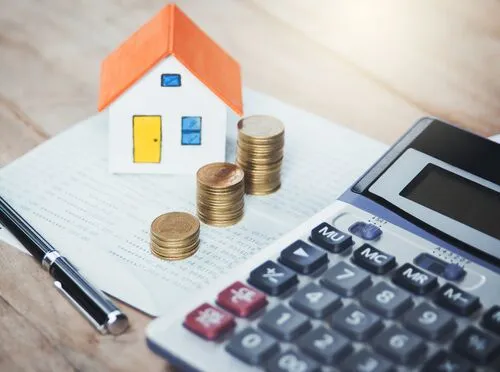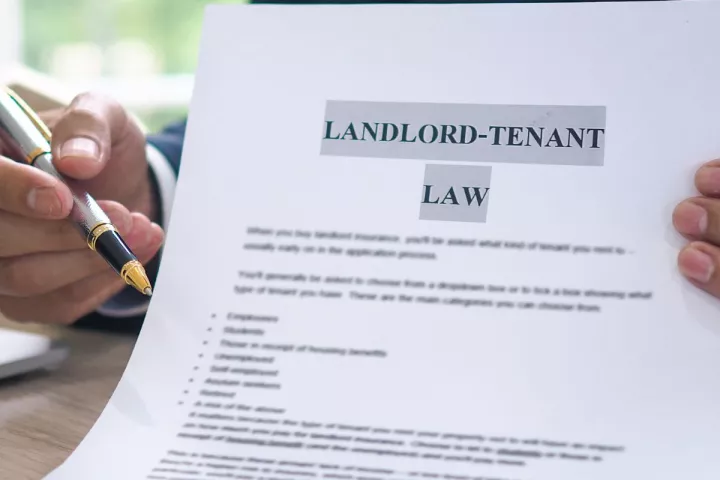Yes, you typically must declare rental income even if you don’t make a profit. Rental income must be reported to tax authorities, regardless of whether it results in profit or loss.
Tax laws mandate individuals to report all income earned from renting out property, regardless of the financial outcome. Even if your rental expenses exceed the rental income, you still need to declare the income on your tax return.
Not reporting rental income, even if there’s no profit, can lead to penalties and legal consequences. Accurate reporting all rental income is important to comply with tax regulations.
What are the tax laws related to rental income?

Under tax laws related to rental income, landlords must declare all income received from renting out properties, regardless of profitability.
This includes different things like rent payments, late fees, money for utilities from tenants, and lost security deposits.
Expenses and Deductions:
In the past, landlords could deduct mortgage interest directly from their rental income. However, recent changes mean that mortgage interest is no longer deductible in this manner. Instead, landlords can now claim a tax credit equal to 20% of the mortgage interest they pay.
Moreover, landlords can deduct several other expenses related to maintaining and managing their rental properties.
These may include costs for repairs and maintenance (excluding improvements), building and contents insurance, letting agent fees (if applicable), legal fees for short-term lets or lease renewals, accounting fees, council tax, utility bills (if paid by the landlord), ground rent, service charges, and replacement furniture (excluding normal wear and tear).
Tax-Free Allowance
Landlords can earn up to £1,000 annually tax-free through rental income, known as the property allowance.
However, if their income exceeds this threshold, they must declare all income and claim any allowable expenses.
Tax Rates
Your rental income is taxed at your marginal income tax rate. This means it’s added to your other income sources and taxed accordingly
| Income Tax Rate | Total Income Range |
| 0% | Below £12,570 (for the 2023/24 tax year) |
| 20% | £12,571 – £50,270 |
| 40% | £50,271 – £150,000 |
| 45% | Exceeds £150,000 |
Reporting Requirements
Landlords must report their rental income on a Self Assessment tax return if their gross rental income from property is £2,500 or more per year, or if their net rental income (after allowable expenses) falls within the range of £2,500 to £9,999 per year.
Penalties for Non-Compliance
Failure to declare rental income can lead to significant penalties and interest charges on the back taxes owed.
In severe cases, landlords may even face criminal prosecution for non-compliance with tax regulations.
Therefore, landlords must understand and follow the tax laws related to rental income to avoid legal consequences.
When is it necessary to declare rental income?

You need to declare rental income in most cases, even if you don’t make a profit.
You must declare your rental income, whether it covers your expenses or not. This helps tax authorities assess your total tax liability.
Even if you have a net loss after deducting allowable expenses from your rental income, you still need to report it. The deductions can help offset the income and potentially reduce your overall tax burden.
Some countries or regions may have a property allowance or de minimis threshold. This means you can earn a small amount of rental income (e.g., £1,000 in the UK) without needing to declare it. However, if your income exceeds this threshold, you must declare it all.
What are the consequences of not declaring rental income?

If you find yourself in a situation where you’ve not declared rental income, there are several possible outcomes
- If a landlord fails to declare their rental income to HMRC, they could face substantial penalties.
- Deliberate tax evasion can lead to criminal prosecution.
- Not declaring rental income may result in losing valuable tax reliefs.
- Please report income to ensure your eligibility for personal allowances.
- Undeclared income impacts capital gains tax exemptions.
- Non-disclosure affects eligibility for tax credits.
- Unreported income may impact benefit entitlements
FAQ
Do I Pay Tax on Rental Income if I Have a Mortgage?
Yes, you are still required to pay tax on rental income even if you have a mortgage on the property. Rental income is subject to taxation regardless of whether you have a mortgage or not.
How Does the Taxman Find Out About Rental Income?
The taxman employs various methods to detect rental income, including receiving information from tenants, cross-checking data from financial institutions, conducting property inspections, and monitoring online platforms and advertisements.
How to Avoid Paying Tax on Rental Income?
It’s important to note that attempting to avoid paying tax on rental income is illegal and can lead to severe penalties. However, landlords can minimize their tax liability by accurately reporting all rental income and taking advantage of allowable deductions and tax credits available to them. It’s recommended to seek advice from a tax professional to ensure compliance with tax laws while maximizing tax benefits.
Final thoughts
Landlords are required to declare all rental income to tax authorities, regardless of whether it results in a profit. Even if there’s no profit from rental income after deducting expenses, such as mortgage interest and maintenance costs, it must still be reported.
Not declaring rental income can result in penalties and legal consequences, including fines and potential criminal prosecution.
Therefore, it’s crucial for landlords to accurately report all rental income to ensure compliance with tax regulations and avoid adverse consequences.



